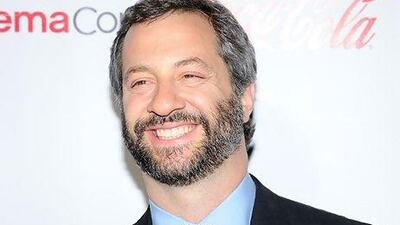Following celebrities on Twitter – we all do it, right? Admit it – it’s the reason so many of us have taken to the increasingly popular social networking site. You might even call it a legal form of stalking. But, really, Twitter is increasingly becoming the platform for our celeb-driven age. Allowing us to be plugged into a constant stream of gossip from our favourite athlete/actor/singer/model/wannabe, it creates the illusion that we’re just that bit closer to our pin-ups.
For the stars, the benefits are obvious: it’s the ideal way to boost their profile, push their product and maintain their fanbase. It’s not all about keeping the crowds at arm’s length, either. You might even get a personal visit, as one lucky fan of the American football player Chad Ochocinco Johnson did. Realising the New England Patriots player was driving around Miami, the sports fan tweeted him to come and visit, and Johnson duly obliged, turning up on his doorstep.
It can be a great ego-stroker, which the British actor and comedian Simon Pegg found when Paul, his 2011 alien comedy, took a pasting from the critics. "In the face of a few scathing reviews, it's still lovely to get a huge amount of love for it on Twitter from cinemagoers," he says. "That was really nice."
Liable to see his already sizeable 2.8 million following increase when he returns as Scotty in Star Trek into Darkness this summer, Pegg also admits that being "a little more available" to fans "isn't necessarily a good thing". But he likes the sense of contact it brings him. "I tweet more when I'm away from home. You can always tell when I'm home, because I don't tweet much, because I'm doing real things! But when I'm just on my own, it's quite nice – it's like having a city in your pocket."
Judd Apatow, the director of the forthcoming comedy This is 40, and his wife Leslie Mann, who also stars in the film, are both avid Twitter users. They even tackled the subject in a recent interview with Deadline.com.
“Leslie will track how long I’ve been in the bathroom based on my tweets,” he told the website. “She’ll say: ‘I know you’re not going to the bathroom. You’re tweeting.’”
As easy as it is to follow Pegg, Apatow or anyone else, it’s getting them to follow you that’s the trick.
“Every fan wants to be followed,” says the tween actress/singer Victoria Justice, who has racked up a whopping 3.4 million followers. “That’s the big thing. I follow one hundred-and-something people [371, actually]. I like to keep it a smaller group, because I like to interact with them and I know a lot of the fans’ names and I’ve become friends with them, which is cool.”
Justice regularly does Twitter sprees, a mix of random responses, shout-outs and rapid-fire Q&A sessions, even tantalising fans with the possibility of being ushered into the inner circle (recently asking them to tweet her with the hashtag #VicmasDay1). If you're reading this and feeling out of touch, not having yet joined the 500 million who have signed up to Twitter, fear not.
Even those who are on Twitter don’t always engage – as Gwyneth Paltrow admitted on a recent promotional trip to Dubai for a Hugo Boss fragrance.
“You know what? I don’t go on Twitter enough at all,” the actress and Goop lifestyle guru told The National. “I’m on it once in a while but I’m very bad at reading responses and retweeting – I’ve got to get a bit better at it.”
Of course Paltrow could also be a little gun-shy. After all, she took a drubbing last year when, while watching her friends Jay-Z and Kanye West perform, she reportedly tweeted “N****s in Paris, for real”. That the insulting phrase is also the title of one of the pair’s songs did not quell the ensuing outrage.
And so, a drawback: Twitter is a fast way to embarrass oneself (not to mention prompt cries of racism). Kim Kardashian is among the legion of celebrities who have found this out the hard way, multiple times, most recently drawing ire for wading into the Middle East conflict.
The Bourne Legacy star Jeremy Renner, who does not have a Twitter account, allows that the site can be a great way for stars to “control rumours” but can’t understand what he calls “the ego side”.
“Why do people care about what I’m thinking or saying?” he says. “It’s the most asinine thing I’ve ever heard in my life. Go to the mountain top and shout what you’re thinking and feeling… I don’t care! You just had a cup of coffee and just burnt your tongue – really? I don’t care! I got a life to live, my man! I got things to do. But for some people, it really works.”
Certainly the Black Swan film director Darren Aronofsky has begun to see the light. He recently joined Twitter and has already gained almost 60,000 followers.
“I kind of feel that if you don’t get involved with some kind of social media, you’re getting left behind at this point,” says Aronofsky. “It is a new world.”
While he admits he’s uncertain “how filmmakers will benefit from it”, he recently tweeted the first photo of his forthcoming Biblical epic Noah – a picture of the replica ark built in Long Island, New York.
“I think the studio was a little nervous about what it was, but I wanted to,” he says. “I get the whole idea of teasing people, showing them something that’s cool but not giving away too much. But you’re in a world where you can’t hide anymore. We built the outside of the ark in a public park so it was legal for any photographer to come and take pictures. So we thought, let’s get the first image out there that’s our own, so at least we’re controlling it.”

